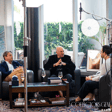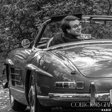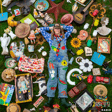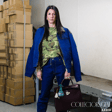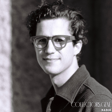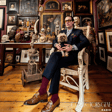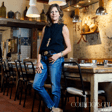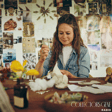
Mr. Chow - The Artful Palate of a Culinary Maestro & Masterful Collector
Michael Chow may not sound familiar to you, but what may sound familiar is Mr. Chow, the name of his highly luxurious and booming restaurant chain. Mr. Chow is a collector of art, art deco furniture and objet, and just about anything that is part of his day to day, all the way down to his thoughts and expressions. Name the first shot of any movie and he can tell you everything. He’s as sharp as it gets. Everything he does he relates back to art and theater, it’s truly a piece of who he is. He is one of the most eccentric (in the best way) and fascinating people I have ever had the chance to speak with. He’s the type of collector who wills what he wants into his ecosystem. Everything he does is based on repetition and collecting. Sound like a true collector to you? Mr. Chow did not have the most conventional upbringing in China, with his father being at the top of stardom, of which is still celebrated in China today, and having left at a very early age. Mr. Chow eventually opened up his restaurants, and when he opened his first one in New York, it quickly became the hotspot of the likes of Warhol, Basquiat, and many others that will probably keep your jaw open for an uncomfortable period of time. In fact, Basquiat once created a piece for M and had it delivered right to his apartment. An artist himself, he has turned his passion for collecting into a personal hobby. He’s got stories beyond belief and you can see it all in his new HBO documentary AKA Mr. Chow. With honor, Mr. Chow for Collectors Gene Radio.
aka Mr. Chow - https://www.hbo.com/movies/aka-mr-chow
Mr. Chow - https://www.mrchow.com/
Michael Chow Art - https://www.m-michaelchow.com/copy-of-theater-of-painting
